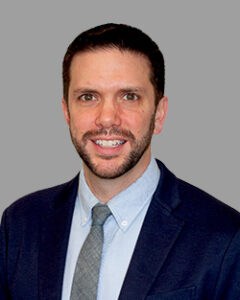September 5, 2023
Balancing Passion and Profession: A Guide for Healthcare Practitioners
- by Jesse Overbay, JD, Associate Director
We all know how easy it is for busy medical providers and managers to become consumed with the day-to-day tasks of running a practice and practice management. This can lead to losing sight of their personal goals and passions. That’s why I recommend The EOS Life1 system as a tool to help healthcare providers and practice administrators balance their personal and professional lives. In this blog post, I’ll introduce the five points of The EOS Life and explain how medical providers and practice administrators can benefit from reviewing these points, with specific examples in the context of healthcare.
The Five Points of The EOS Life Are:
- Do what you love
- With people you love
- Make a huge difference
- Be compensated appropriately
- And make time for other passions
1. Do What You Love
Healthcare providers who are passionate about their work and love what they do are more likely to be successful and fulfilled. For example, a dermatologist who loves helping patients with skin conditions will likely be more motivated to stay up-to-date on the latest treatments and procedures in their field. By reviewing this point regularly, medical practitioners and managers can ensure they are still enjoying what they do and make any necessary adjustments to their work to stay engaged and energized.
2. Working With People You Love
Working with people you enjoy being around can make a big difference in the workplace. Medical practitioners and managers who surround themselves with supportive and positive office staff members are more likely to have a positive and productive workplace culture. For example, a cardiologist who enjoys working with their nursing staff is more likely to have better communication and collaboration, leading to better patient outcomes and patient care. By regularly reviewing this point, a physician practice can assess its team dynamics and make any necessary changes to create a more cohesive and supportive workplace environment.
3. Make a Huge Difference
Healthcare professionals often enter the field to make a difference in people’s lives. By regularly reviewing this point, those who work in a medical office can ensure they are still making a meaningful impact on their patients and community. For example, an oncologist who volunteers for cancer research studies or participates in community outreach programs can feel a greater sense of purpose and accomplishment. By focusing on making a difference, healthcare professionals can stay motivated and engaged in their work.
4. Be Compensated Appropriately
Healthcare professionals often have a strong desire to help others and may undervalue their own work. However, it’s important for those who work in a healthcare practice to feel they are being compensated fairly for their expertise and time. By reviewing this point regularly, providers and those who work in office management can assess their compensation package and make any necessary changes to ensure they are being fairly compensated for their work. For example, a practice manager who reviews their compensation package may realize they are due for a raise or additional benefits that will help them feel more valued and motivated in their role.
5. Make Time For Other Passions
While healthcare is a demanding field, especially for those in independent practice, it’s important for medical practitioners and managers to have time for other interests and hobbies outside of work. By regularly reviewing this point, healthcare professionals can ensure they are not burning out and are maintaining a healthy work-life balance. For example, a pediatrician who enjoys hiking may schedule regular weekend trips to the mountains to unwind and recharge. By prioritizing time for other passions, medical practitioners and managers can reduce stress and increase their overall satisfaction in life.
How to Apply These Key Points
To make the most of the fulfillment and engagement survey, it’s essential to establish a suggested cadence for self-reflection. While this can vary depending on the size and dynamics of your healthcare organization, quarterly reviews are often recommended. Quarterly reviews allow for regular check-ins and provide an opportunity to track progress over time. By implementing a consistent cadence and setting up a workflow, you can ensure that the survey results are not only collected but also acted upon in a timely manner. This enables you to make meaningful adjustments and improvements based on employee feedback, enhancing overall engagement and satisfaction through automation.
When analyzing the survey results, you may encounter areas where scores are lower than desired. This presents an opportunity to brainstorm ideas on what can be done to improve those particular scores. Encourage open discussions with your team and office staff, seeking input and ideas from employees at all levels. Foster an environment that values creative problem-solving and collaboration. For example, if the question about compensation scores lower than expected, consider exploring options such as performance-based incentives, additional benefits, or professional development opportunities. Brainstorming sessions can yield innovative solutions that address underlying issues and improve employee satisfaction.
Once you have identified potential strategies for improvement, it’s essential to implement them and retest their effectiveness. Implement changes thoughtfully and communicate them to your team in real-time. Encourage ongoing feedback and monitor the impact of the implemented changes. Conducting a follow-up survey after a reasonable period allows you to assess whether the adjustments have positively impacted employee engagement, fulfillment, and management systems. Regularly tracking and comparing survey results will help you gauge the effectiveness of your strategies and streamline any necessary refinements.
Remember, the fulfillment and engagement survey is not a one-time event but an ongoing process. It provides a valuable feedback loop that allows you to continuously assess and improve the work environment (including the medical facilities), business operations, and employee experience within your healthcare organization. By utilizing the survey as a tool for self-reflection, generating ideas for improvement, implementing changes, and retesting, you can foster a culture of continuous growth and engagement.
In conclusion, conducting a fulfillment and engagement survey within your private practice or healthcare organization is a proactive step towards enhancing employee satisfaction and productivity. By establishing a suggested cadence for self-reflection, actively seeking input and ideas for improvement, implementing strategies, and retesting their effectiveness, you can create a work environment that fosters fulfillment, engagement, and overall success.
1The EOS Life system and the five points mentioned in this article were developed by entrepreneur and author Gino Wickman, and have been widely adopted by businesses and healthcare organizations to improve employee fulfillment and engagement.”
If you would like guidance on these areas or other matters related to the healthcare industry, our consultants and specialists are available to assist. Contact Jesse Overbay via email at [email protected], call 800-635-4040, or visit our website at www.doctorsmanagement.com to learn more.

Jesse D. Overbay, JD, Associate Director, General Counsel
DoctorsManagement, LLC
About DoctorsManagement
Founded in 1956, DoctorsManagement, a full-service healthcare consulting firm, helps practices of all sizes reduce compliance risks, increase practice profits, improve patient satisfaction and employee morale as well as reduce stress for physicians, managers, and staff. The firm uses strategies that have been proven over five decades of experience and gives clients access to a team of nationally recognized industry experts in practically every area of medical practice management, including compliance, healthcare analytics, coding, auditing, financial services, patient retention, human resources, and more.

























